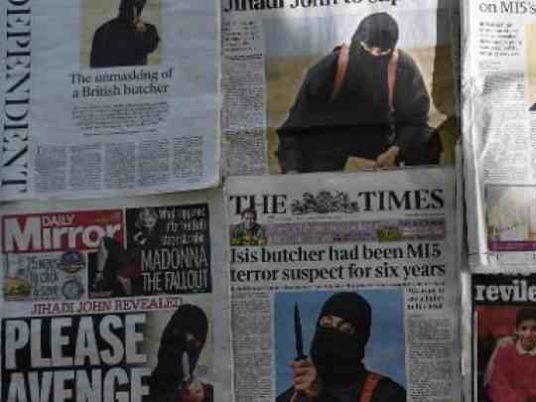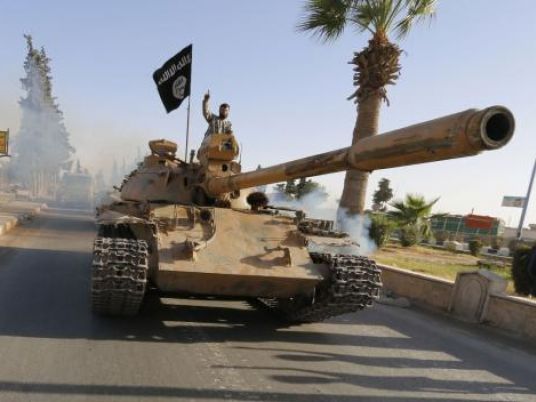
Mohammed Emwazi, named by British and US media as the Islamic State executioner known as "Jihadi John", has been described as a quiet but intense young man who gradually developed a taste for war.
People who knew him quoted in British media reports said they could not reconcile their impressions of football-loving Emwazi with that of the "cold, sadistic and merciless" killer, as he is remembered by one former hostage.
Emwazi, 26, was born in Kuwait but the family moved to London when he was six years old and he grew up in North Kensington, a leafy middle-class area of west London where a network of Islamist extremists has has been uncovered in recent years.
As a child he was a fan of Manchester United football club and the band S Club 7, according to a 1996 school year book published by The Sun tabloid.
"What I want to be when I grow up is a footballer," he wrote in the book.
He went on to study information technology at the University of Westminster, which confirmed that someone by that name left six years ago and said it was "shocked and sickened" by the allegations.
His university records, including a photograph, were published by Sky News on Friday.
The document revealed his birthdate to be August 17, 1988, and that he gained a lower second class (2:2) degree in his Information Systems with Business Management degree.
Some reports quoted former students remembering radicals at the university and said that a student connected to the radical group Hizb ut-Tahrir became president of its union.
– 'Strange and unfriendly' –
The campaign group Cage, which published years of correspondence with Emwazi, blamed his radicalisation on a post-graduation trip to Tanzania in 2009.
Emwazi told Cage the trip was a holiday but said he was accused by British authorities of planning to join al-Shabab fighters in Somalia.
Following overnight detention at gunpoint in Dar es Salaam, the Tanzanian capital, Emwazi said he and his friends were sent back to Britain via Amsterdam, being interrogated in both ports, according to the correspondence released on Thursday by the London-based charity.
He claimed that British intelligence services had been behind his detention, that they had asked him to become a spy and that they had promised him "a lot of trouble" after he rejected the offer.
On the advice of his mother and taxi-driver father, Emwazi flew to Kuwait to live with his fiancee's family and took up a job in IT, Cage said.
He paid two return visits in 2010 to see his parents, who were now living in a modest house on the edge of a housing estate in west London.
Neighbour Elisa Moraise told the Daily Telegraph that Emwazi by then had become "strange and unfriendly".
– 'Adrenaline junky' –
It was while trying to return to Kuwait after the second of these visits, in July 2010, that he claimed in his emails to Cage that authorities blocked him from travelling and put him on a terror watch list.
Court papers published by British media connected him to a networks of extremists known as "The London Boys" — originally trained by al-Shabab.
The Guardian newspaper said that some of them played five-a-side football together.
The papers also linked him to Bilal al-Berjawi, who became a senior leader of al-Shabaab but was killed in a US drone attack in January 2012.
After changing his name to Mohammed al-Ayan and one final failed attempt to enter Kuwait in early 2013, he went missing, the Cage emails said.
Cage said the police told his family they believe he travelled to Syria after that.
How he rose to become one of the world's most wanted men is a mystery, but one hostage who fell under his control in the IS group's hub in Raqqa talked of a "cold, sadistic and merciless" killer.
Two British trainee medics who met Emwazi when he visited friends in a Syrian hospital described him as "quiet, but a bit of an adrenaline junkie".
"I spotted this guy walking in, dressed in full combat kit, with a pistol on a holster, magazine, shopping bag in one hand and talking on a phone in the other," one of the medics told ITV News.
"He would bring drinks, sweets and ice cream".
They described hearing of one incident in which Emwazi drew his gun against a group of armed men who threatened to rob his weapons.
"He seems like someone with not a lot to lose," said the medic.

